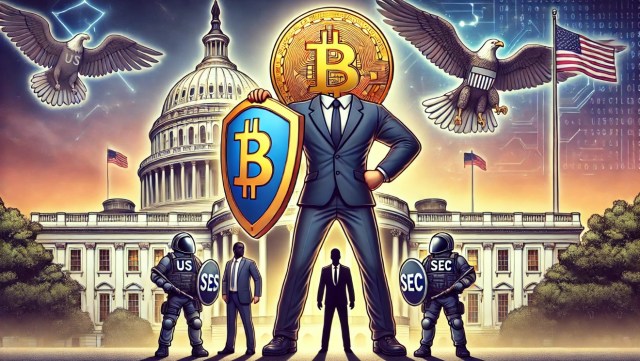OpenSea, one of the largest marketplaces for non-fungible tokens (NFTs), found itself at the center of controversy after the Securities and Exchange Commission (SEC) issued a Wells Notice early Wednesday over the alleged classification of NFTs as “securities.”
This prompted reactions from prominent figures in the crypto industry, US senators, and market experts, all of whom expressed deep concern about what they perceive as ongoing “regulation by enforcement.”
OpenSea Eyes Court Battle Against SEC
Market expert Adam Cochran has floated a bold proposition, suggesting that OpenSea may have a rare opportunity to challenge the SEC’s regulatory stance through legal means.
Cochran advocates for OpenSea to potentially contest the SEC in court using a writ of mandamus, a legal avenue that urges the courts to compel an agency to fulfill its duties.
The argument hinges on the assertion that NFTs, as digital collectibles, are unfairly targeted by the SEC, while traditional collectible issuers such as Topps, Hasbro, and Rolex remain unscathed.
This perceived inconsistency in enforcement, Cochran argues, raises questions of arbitrariness and calls into question the SEC’s duty to protect US investors. The expert further contended that this is “arbitrary and capricious” enforcement in violation of the Administrative Procedure Act (APA):
I’ll say for the third-time, it’s a long shot, there is a good chance a court will defer to regulators discretionary powers, or find OpenSea doesn’t have a legal right to relief – but most crypto companies don’t have a history of comparable to collectibles.
Ryan Sean Adams, of Bankless, joined the chorus of dissent, highlighting the SEC’s purported intention to categorize NFTs as securities, adding a new layer of complexity to the unfolding saga.
Adams decries what he perceives as an assault on crypto entities like OpenSea, labeling the SEC’s actions as an affront to constitutional rights and an impediment to crypto innovation in the US.
According to Adam’s assessment of the matter, the targeting of key crypto platforms such as Metamask, Coinbase and Uniswap illustrates a broader crackdown on the sector and raises concerns about the future of digital asset regulation.
Lawmakers Push For Fair Crypto Rules
Congressman Wiley Nickel also weighed in, condemning the Securities and Exchange Commission approach as a “blatant abuse of power” that undermines trust in the regulatory system.
In a recent social media post, the Congressman called for a collaborative effort between the Commission and Congress to develop clear and fair regulations that would foster innovation rather than inhibit it.
The reaction from industry leaders and lawmakers reflects a growing unease with the SEC’s regulatory tactics that the industry has experienced in the last years under the Biden administration and the leadership of SEC Chairman Gensler.
Critics argue that the aggressive enforcement actions are creating uncertainty and could hinder the progress of digital innovation in the United States. As the situation develops, the pressure mounts for the SEC to provide clearer guidance on NFTs.
Featured image from DALL-E, chart from TradingView.com









